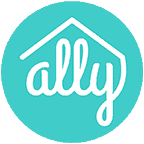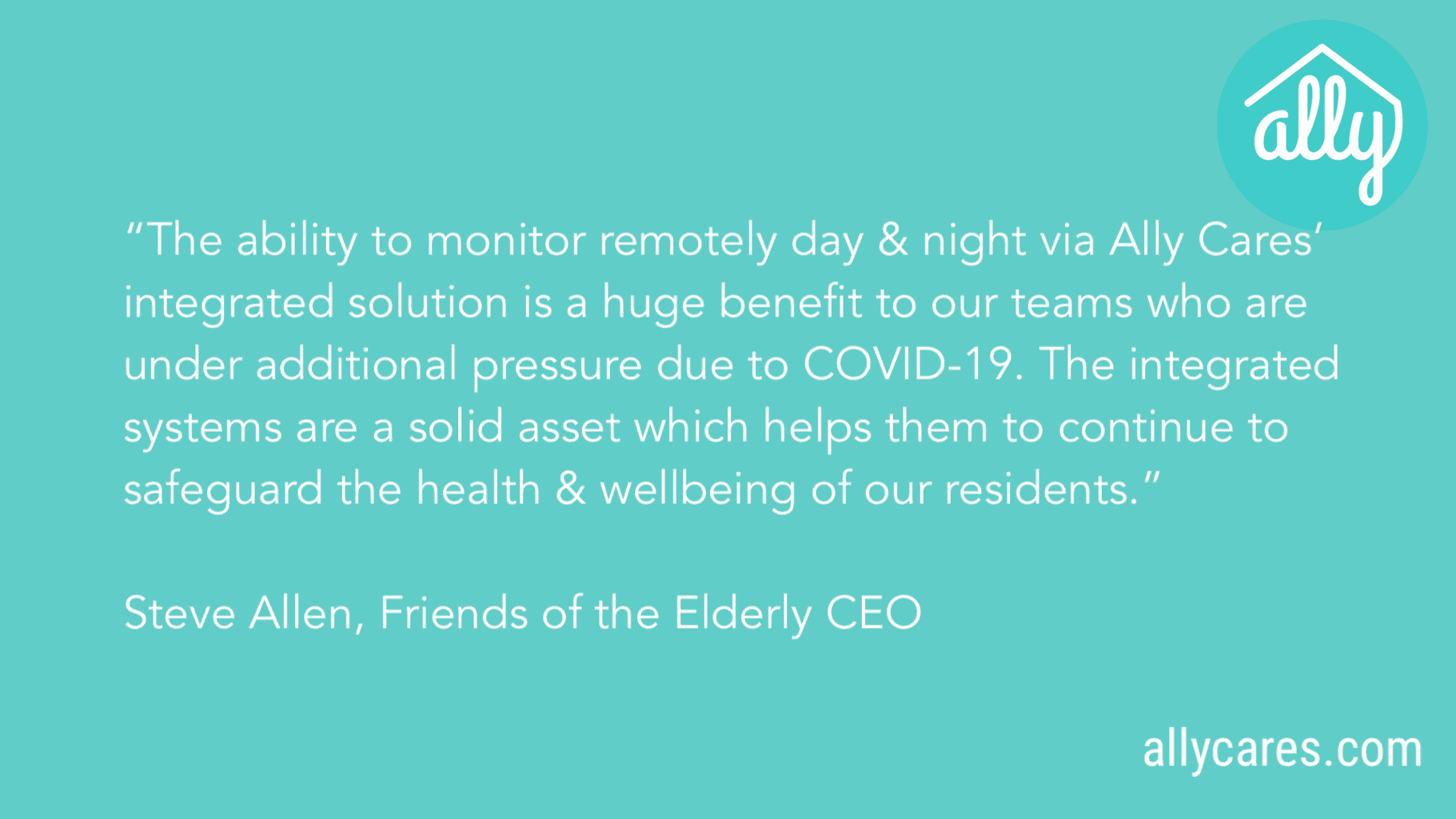There has been a lot of press coverage recently on the increased workload and pressure felt by care staff. For example, due to staff shortages and for social distancing purposes some care staff are now working 16-hour shifts as opposed to the normal 12. This increase along with the additional stress of COVID-19 has understandably reduced the resilience of some staff, which has led to more sickness, apathy and poor care staff retention.
One of the key areas for care staff at the moment is for them to feel safe. They want to know that when they come to work they are not only keeping themselves safe, their residents safe, but also their families safe when they return home.
Some of our customers have recently told us that less contact with residents increases that feeling of safety for all. In addition that reduces the amount of PPE required and therefore maintains stocks for when it is needed. Again, this improves the feeling of safety should the worst happen and there be another spike in homes.
One of the consequences of more sick leave being taken is the increase in agency use which, as the Office for National Statistics states has been a major contributing factor in the spread of COVID-19 within care homes. You will of course already appreciate the cost of agency staff (shifts cost around £400 each) and the cost of recruiting new members for your teams (typically £5,000 to recruit and train each new staff member).
Additionally, staff shortages will be compounded by the impact of the Government’s immigration bill, which has already passed the first stage of approval by MP’s and care workers are not considered ‘skilled’ and therefore will not be included in the points system. The Cavendish Coalition recently stated during a BBC interview “this points-based system currently does not include social care as the roles do not pass the proposed minimum salary threshold and “are not classed as a shortage occupation”.
Naturally, this article will include some information about how Ally can reduce the pressures on staffing and improve care staff retention whilst increasing resident safety due to the additional pressures of COVID-19: Ally’s resident monitoring solution ensures staff do not unnecessarily disturb residents who are sleeping at night. Ally is also successfully used during the day to help isolate those at risk or residents with symptoms. You can read what Friends of the Elderly’s Chief Executive, Steve Allen said about the impact of Ally in an interview by Digital Care Management Matters.
We have of course heard some incredible stories such as staff living in care homes for the last few months, which is above and beyond what would normally be expected of them. It just goes to show the incredible levels of commitment by carers in our industry.
Do let us know if you’d like to speak about the positive impact of using Ally in your homes
Boost Your Care Staff Retention and Satisfaction
There has been a lot of press coverage recently, giving an insight into just how difficult working conditions have been for care staff in the last few months and the significant impact on their morale and resilience.
The ‘new world’ we are in means staff will now be dealing with the long-term management of coronavirus, whilst care homes will also have to deal with the consequences of Governments’ immigration bill, which will lead to industry-wide staff shortages.
This makes it extremely important for care homes to invest in tools to help make staff’s lives easier, improve their satisfaction, and ultimately help reduce churn, sickness, and agency use.
Ally helps care homes lower staff stress levels and pressure by safely reducing contact with residents that aren’t needed. This frees up time and reduces the risk of staff catching COVID-19.
“The ability to monitor remotely day and night is a huge benefit to our teams who are under additional pressure due to COVID-19. The Ally system is a solid asset that helps them to continue to safeguard the health and wellbeing of our residents. Steve Allen, Chief Executive at Friends of the Elderly
Why do care staff using Ally feel safer and under less pressure?
Our customers have been reiterating how important it is for their staff to feel they can keep their residents safe from infection but also themselves and their families when they return home.
They have told us how as a consequence of using Ally, less contact with residents increased their feeling of safety for all and significantly reduced the overall pressure on staff who may have been working extended or back to back shifts whilst constantly changing their PPE.
Additionally, the reduced use of PPE due to reduced contact has helped to maintain stocks for when it may be needed again in the future, further adding to staff comfort and decreasing pressure.
Ally proves a sound COVID-19 investment for your staff:
You will, of course, appreciate that a major consequence of low care staff morale is increased agency use, as staff either churn or are less willing to help pick up extra shifts. Additionally, using agency staff has been attributed by the Office for National Statistics as the major factor in spreading COVID-19, further increasing the financial risk of lower occupancy.
“My night staff are so much more engaged, they really feel like they are part of the home since they can now proactively hand over to day-staff and play an active role in care planning, which was much more difficult to do before they could put context around the residents’ wellbeing.” Susan Graham, Home Manager at Greensleeves
Reducing churn by 10% and saving just 3 agency shifts/month will deliver a 230% ROI. Learn how installing Ally also helps boost your occupancy.

